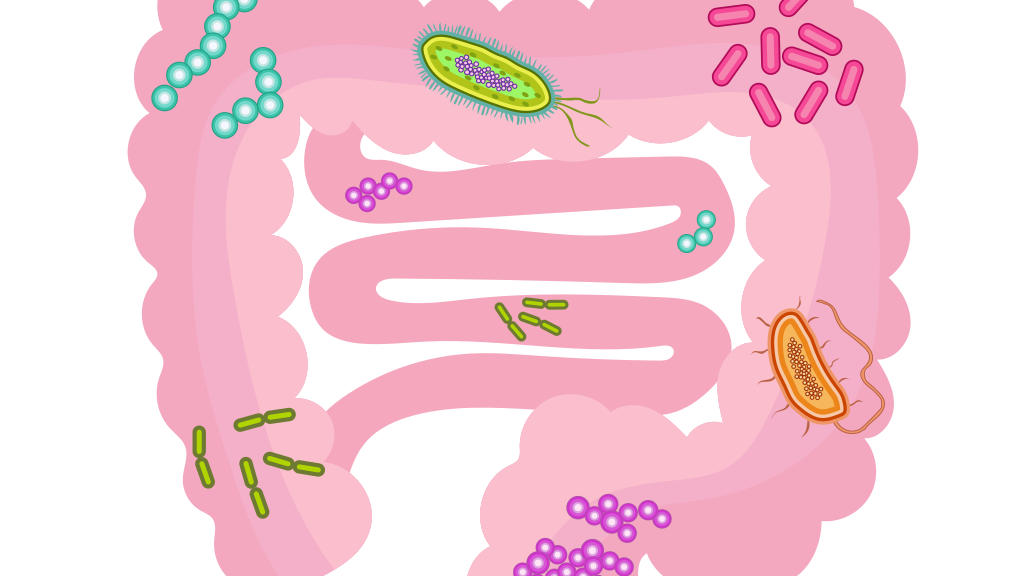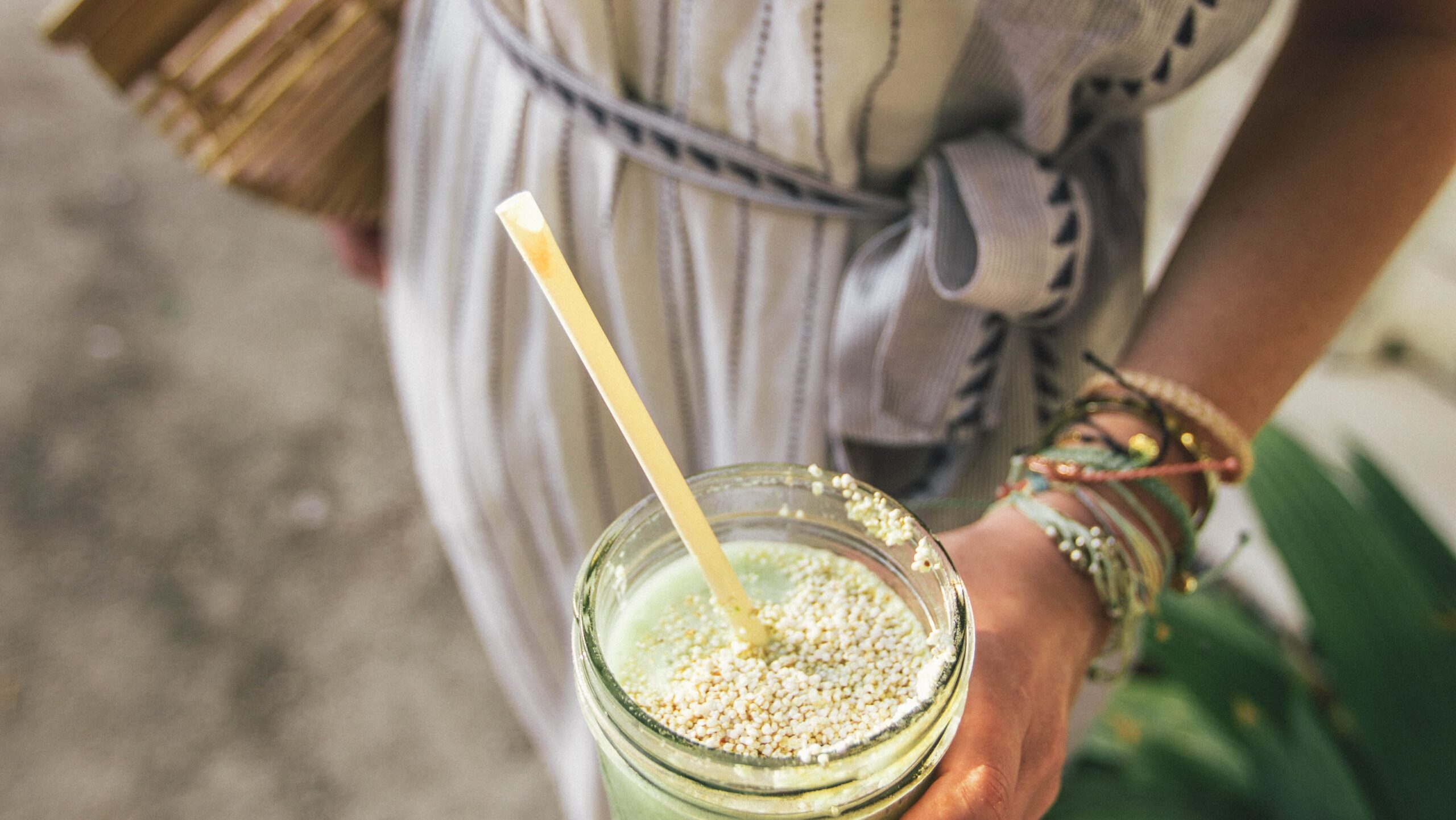News Team member Caroline Hansen reports that hospital closures across the United States threaten equitable healthcare access for rural populations and demand solutions.
A User’s Guide to Navigating #GutHealth on TikTok
The popular app serves up millions of videos on gut health and digestion, but many promote disordered eating and are not evidence-backed.
By Rebecca Sugerman
According to TikTok, you probably need to heal your gut. The term #guthealth has more than 3 billion views on the shortform video app, and millions of videos claim to be spreading tips for what they call “optimal gut health,” grouped under the hashtag #GutTok.
Gut health is a broad term, taking in digestive disorders and diseases as well as the gut microbiome. It is important to follow a healthy lifestyle that maintains a healthy gut microbiome, which is characterized as having more good bacteria and fewer bad bacteria. When the microbiome is out of balance, it can lead to inflammation, pain, gastrointestinal distress, and other health complications.
Many of the TikTok videos promote “gut healing,” and they follow a common script, with users outlining a set of symptoms, a solution, and pictures to show differences from before and after. This means that a TikTok user can diagnose themselves with poor gut health within minutes of scrolling on the app. This comes with both pros and cons. The app provides a platform for credentialed professionals to spread educational information and makes resources available; but it also includes videos promoting quick fixes, diet culture, and anecdotes not supported by evidence.

“I think it’s important to recognize that social media trends and buzzwords can sometimes oversimplify complex health topics,” said Dr. Joseph Salhab, a gastroenterologist known as The Stomach Doc on TikTok. “It’s easy to look at those photos and think it is a miracle cure, but I think what a lot of people don’t understand is that it’s very easy to make a video like that, put it up on the internet, and promote it. It’s going to take a lot of diligence on the viewer to make sure that they’re getting the right information from the right people.”
Gut health is complex. Each legitimate digestive disorder requires a unique treatment plan and includes trial and error for each individual. Poor gut health may be caused by a preexisting medical issue, or could be the result of a number of lifestyle factors. GutTok videos do not recognize this difference; rather, the videos refer to gut health and gut healing as a single issue.
“There’s just so much missing,” said Lauren Pimentel, a registered dietician, echoing the feeling among professionals that Tiktok over-generalizes gut health. “I don’t often see these experts guiding people in a safe way — and what I mean by that is they just say ‘Try this, do this much per day, this many times,’ and that’s it.”
These simplified views of gut health have opened the door to videos that offer miracle cures promising to rapidly fix undesirable symptoms. That should spark suspicion, because gut health cannot be changed quickly. It takes time to identify what is causing the symptoms and what approach can best alleviate them.
Users indicate that these miracle cures are successful through before and after photos, filming themselves with a bloated stomach and then one that is toned and flat. There are seldom any mentions of guidance from physicians or other health professionals. Instead, video makers self-diagnose, and then write their own eating plans.

“I believe a lot of people are just associating gut health with having a flat stomach, and that’s not necessarily true,” said Pimentel. “Bloat is normal amongst everybody, and you can have a very healthy gut and still experience bloat. I’ve seen a lot of bloat means bad gut health and flat stomach means good gut health.”
While bloating is a warning that the bacterial balance of the gut microbiome is out of whack, it does not necessarily mean that someone has poor gut health. As Pimentel pointed out, bloating can also be normal! Persistent, extreme, or painful bloating should not be ignored; but some bloat here and there, especially after eating, does not equal poor gut health.
Achieving a flat stomach has become the goal and main measure of good gut health on TikTok. With users advertising that they drastically changed their look to be smaller and more toned, they are feeding into diet culture and the need to look a certain way. While some users talk about foods they used to eat that may have been contributing to their bloating and other symptoms, many just promote their miracle cures with no mention of additional dietary or lifestyle changes made.
In addition to promoting a look that TikTok consumers strive to have, GutTok also encourages restrictive diets. Many videos claim that specific foods must be cut from the diet to see results, and the suggestions are not consistent from video to video. After watching a handful of videos, a viewer could end up with an entire laundry list of foods they “must” eliminate from their diet to fix their gut health, all in an attempt to achieve a skinnier look.
While elimination diets are commonly used to help diagnose a digestive issue and figure out the best diet moving forward, they are always accompanied by reintroduction of eliminated foods. This part is missing on TikTok; users are suggesting that these foods alone cause their issues, and thus should be removed from their diets completely. This very restricted eating feeds into diet culture , convincing users that certain foods will lead to an unwanted physique.
“I think that gut health advice on social media could have the propensity to promote unhealthy behaviors, such as extreme food restriction, obsession around certain ingredients, and other anxiety promoting habits,” Salhab said. “You’ll tend to see this more by people who are unreputable — people that really don’t have the credentials to say those things, or at least have the credentials to interpret the studies that are out there.”
Many of these videos have little to no scientific backing and are completely anecdotal. TikTok users posting on the subject boil gut health down to certain symptoms they are experiencing in their own life and post about changes they’ve made, as if they are universal cures that will undoubtedly heal anyone’s gut.
It can also be misleading when a video has received many views because this should not be an indicator of how credible the information is. TikTok promotes videos with more views, meaning these videos will have a higher chance of reaching more people regardless of their credibility.
Doctors and registered dieticians have started posting TikTok videos on gut health in hopes of spreading evidence-based, accurate information. “Social media has allowed people like me, to be able to educate a wider audience,” Salhab said. “It’s rewarding to help people better understand their GI issues and allow them to take steps to manage their issues more effectively. A lot of people are just confused which direction to take. People deserve better — they deserve accurate information.”

So, while #GutTok comes with many problems, it also provides a platform for professionals to spread scientifically accurate information. They can speak accurately about specific disorders, and provide users with informative videos and resources. Additionally, they can help destigmatize the topic. Gut health refers to digestion, and , it is not the most comfortable topic. Yet,TikTok is bringing attention to that in an open and nonjudgmental manner.
Navigating scientific information through social media is difficult to begin with. With so many opinions and theories posted, it can be hard as a consumer to know what to believe. Even knowing a video’s content probably is not credible, it can be hard to ignore the advice being shared — especially with TikTok’s algorithm promoting videos that swear these “cures” cause drastic physical changes. TikTok users should take the information in #guthealth videos with a grain of salt. It is best to both research the claims made on TikTok if curious about its effectiveness and visit a healthcare provider if worried about certain symptoms.
